After the ceasefire, leaders of India and Pakistan seek cover under their flags
Leaders of both countries have sought to relay to domestic audiences competing claims of victory in order to reap political benefits
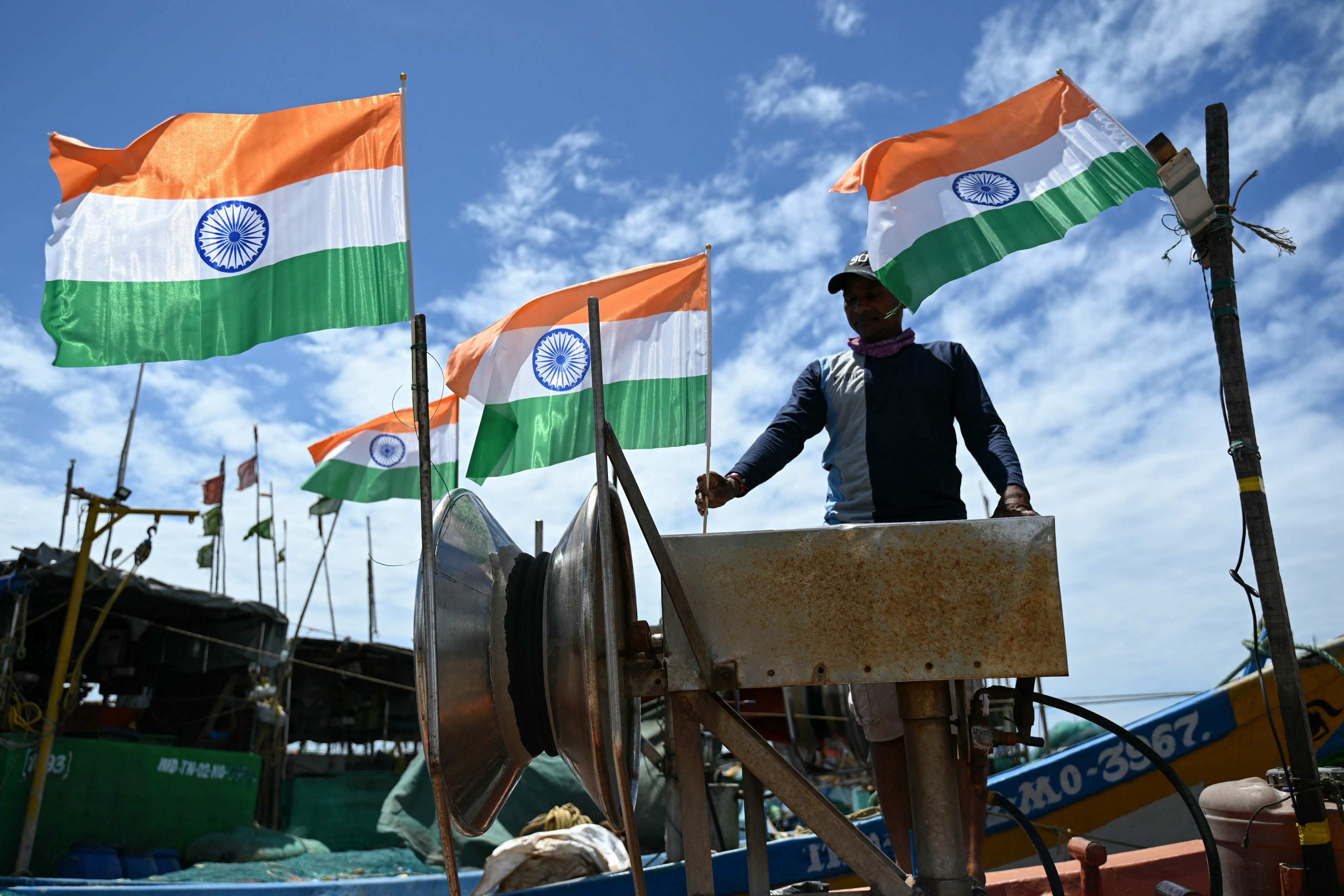
Pulled back from the brink by a ceasefire, nuclear-armed India and Pakistan avoided a potentially catastrophic collision, but the tides of nationalism unleashed by the four-day clash are still rising on either side of the border.
Now, leaders of the two nations are seeking to cement a political dividend from the May conflict, with competing claims of victory relayed to domestic audiences attuned to triumphalism whenever the two nations clash.
“The conflict has created a national fervour on both sides,” said Ajay Darshan Behera, professor at the Academy of International Studies at Delhi’s Jamia Millia Islamia University.
India’s ruling Bharatiya Janata Party (BJP) is now hoping for a bounce in state polls later this year from Operation Sindoor – the military response to a militant attack in Indian Kashmir’s Pahalgam that killed 26 civilians on April 22.
India blamed Pakistan for backing the militants, a charge Islamabad has denied.
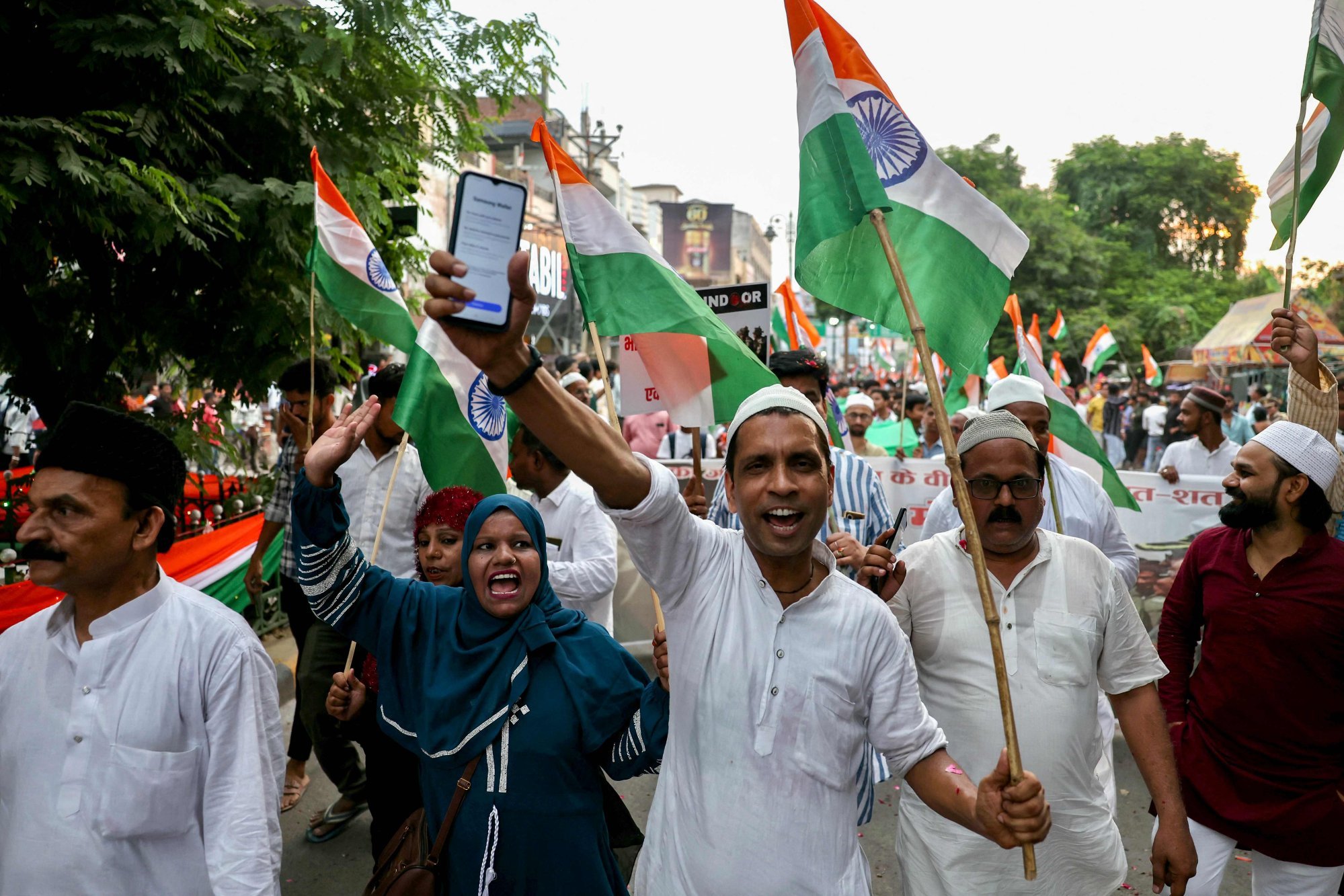
The BJP has already started campaigning on the basis that its government – helmed by Prime Minister Narendra Modi – dared to cross a red line, targeting what it says was “terrorist infrastructure” on Pakistani soil.
But its strikes may have had the unintended consequence of shoring up support for Pakistan’s military establishment, experts say, months after protests erupted against the jailing of former prime minister Imran Khan.
“Pakistan has also created a narrative that they won the war,” Behera said, noting that General Asim Munir was promoted to field marshal after the conflict, projecting a victory to his domestic audience. Defence spending is also poised to skyrocket by 20 per cent as the threat level from India ratchets higher.
“The army has bolstered its reputation after the skirmishes with India,” said Uday Chandra, assistant professor at Georgetown University.
“It has emphasised to its critics, especially to Imran Khan’s supporters, that Pakistan without the army in charge would be unviable.”
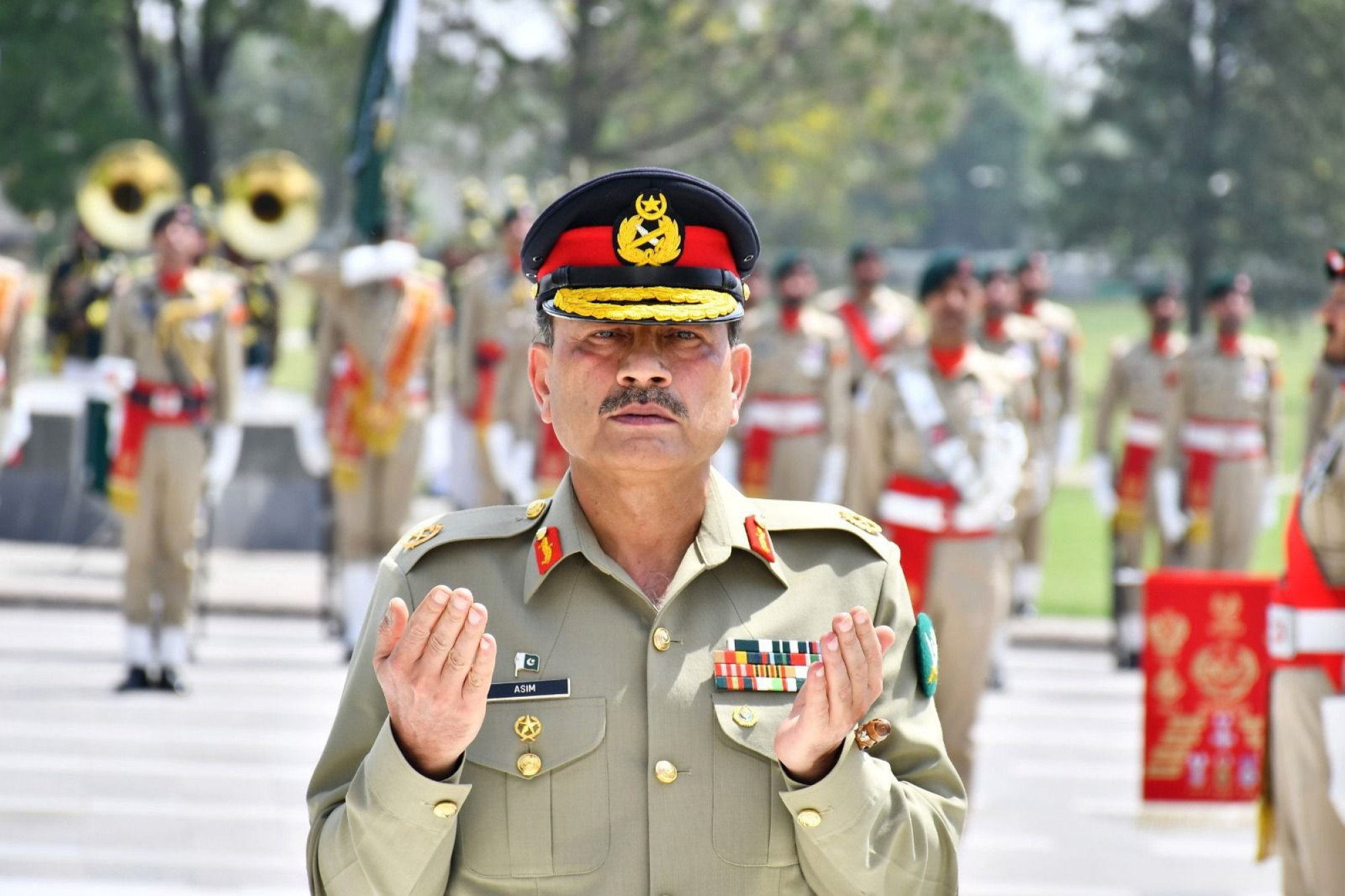
Both governments are making bold claims over who came out worse for the short conflict and are deflecting any criticism of their handling of the conflict as unpatriotic.
While Islamabad says six Indian fighter jets were downed by its forces, Modi has declared Operation Sindoor a “humiliating defeat” for Pakistan.
“[The conflict] has added to his image of being a strong and decisive leader and that he showed Pakistan their place. This will have political benefits for the BJP,” Behera added.
Elections are due in the politically strategic eastern state of Bihar from November this year. Polls in other states including West Bengal, Assam, Kerala and Tamil Nadu are due through 2026 to 2029 before national elections are held again in the country.
Troubled land
Kashmir – a Muslim-majority Himalayan region claimed in full but controlled in part by both India and Pakistan – has been the site of a bloody conflict since an anti-Indian insurgency erupted in 1989. Tens of thousands of people have died, though violence has tapered off in recent years.
Still, Kashmir is perhaps Asia’s most incendiary flashpoint – and leaders from India and Pakistan routinely trade on the festering enmity for domestic political gain, particularly among arch-nationalists.
In 2016 Indian army commandos crossed into Pakistan-administered Kashmir to attack targets, following a militant attack on an Indian army outpost at Uri, also in Jammu and Kashmir.
Three years later India sent fighter jets deep into Pakistani territory to bomb what it claimed was a militant training facility in Balakot in retaliation for a suicide bombing that targeted a convoy of Indian security personnel in Pulwama in Kashmir.
This time, Pakistan has made the louder splash with its claims of military success.
Pakistan said its Chinese-made J-10 jets took down several Indian Air Force aircraft, a claim partly substantiated by India’s chief of defence staff General Anil Chauhan earlier this month.
The Indian military has said it destroyed an air-defence system in the city of Lahore and caused significant damage on Pakistani air bases, including Nur Khan in Rawalpindi, where the country’s military and nuclear command are located. India also said it had downed “hi-tech” Pakistani jets.
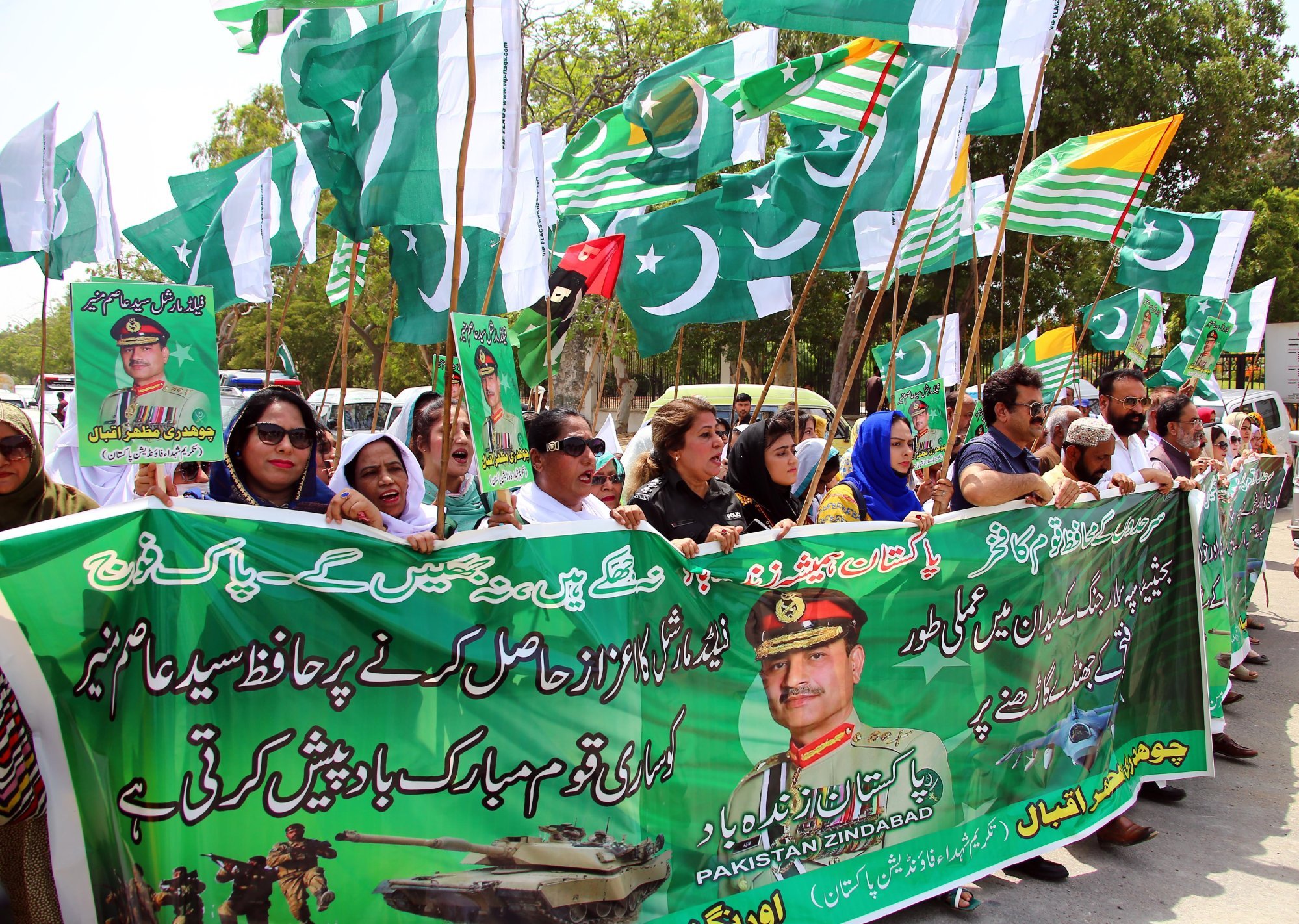
Pakistanis have rallied around the flag – and that has given a timely image boost to the powerful military in a country where no elected leader has ever served out their full five-year term.
In May 2023 security forces arrested former prime minister Khan on charges of corruption – allegations that he called politically motivated.
The arrest prompted thousands of his supporters to storm government buildings and military installations. The government arrested about 1,400 people at that time, though ultimately only a handful were convicted for their role after military trials.
“On the surface, things appear under control [in Pakistan] with war jingoism obscuring the country’s domestic troubles. But scratch below the surface and you find that the army enjoys prestige but limited legitimacy,” Chandra said.
“The popular demand for clean civilian governance remains strong in the country,” he added.
The Pakistan military had “resurrected itself a little” with the India flare-up, Behera said. “What happens in the long term, we have to wait and see.”
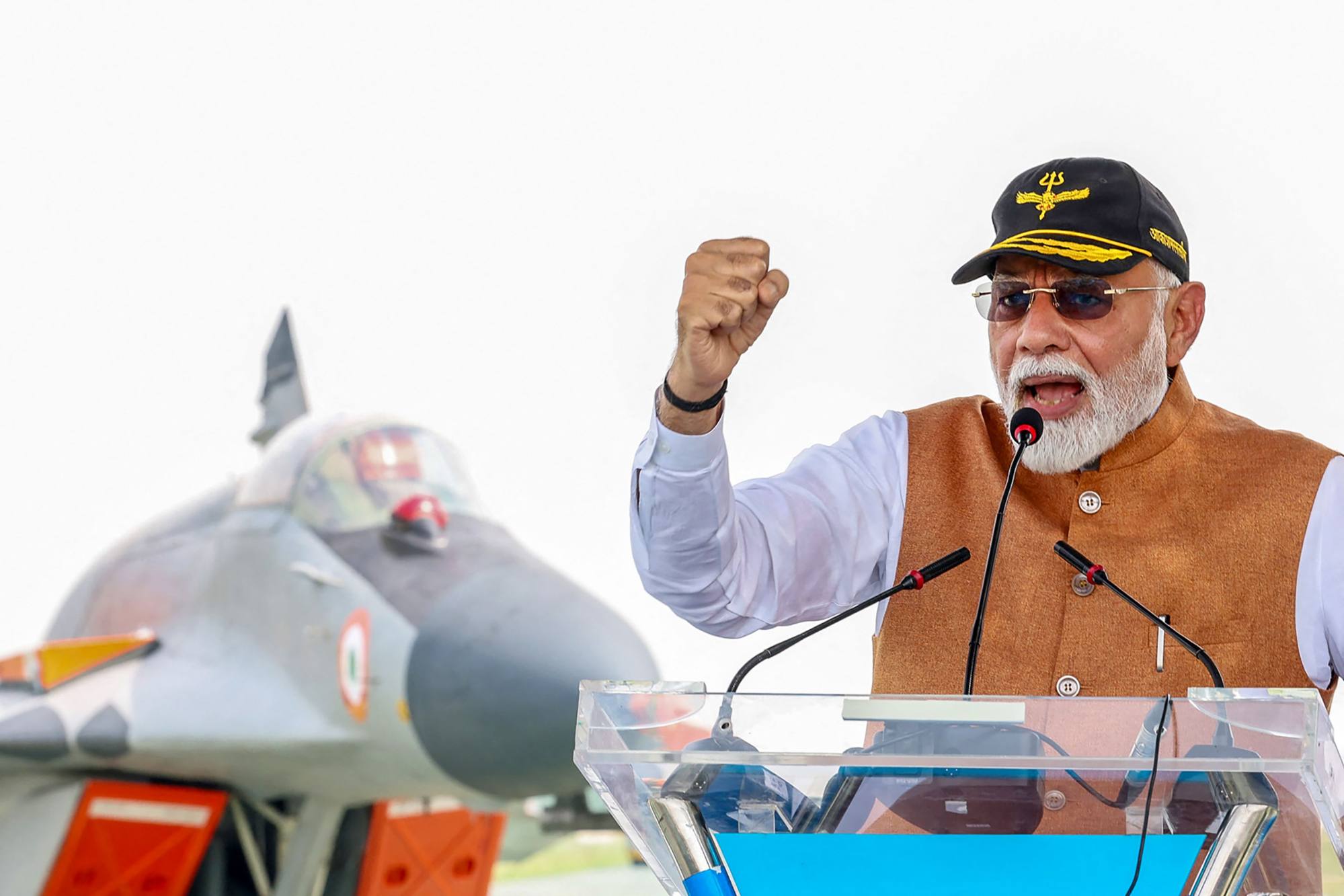
Unmovable Modi?
In September Modi will hit 75, the informal age of political retirement within the BJP and its ideological mentor, the Rashtriya Swayamsevak Sangh.
The menace of Pakistan may fuel any attempt to prolong his stay in office, analysts say, amid local media reports speculating on potential successors.
Yashwant Deshmukh, founder of pollster C-voter, estimates that Modi’s popularity ratings have gone up a notch since the conflict, saying that he is likely to continue in power until at least the end of his prime ministerial tenure in 2029.
“There are maybe a couple of people who can be successors to Modi such as Home Minister Amit Shah and Transport Minister Nitin Gadkari,” Deshmukh said.
“But the question of someone succeeding Modi only arises if he goes anywhere. I don’t see that happening yet.”
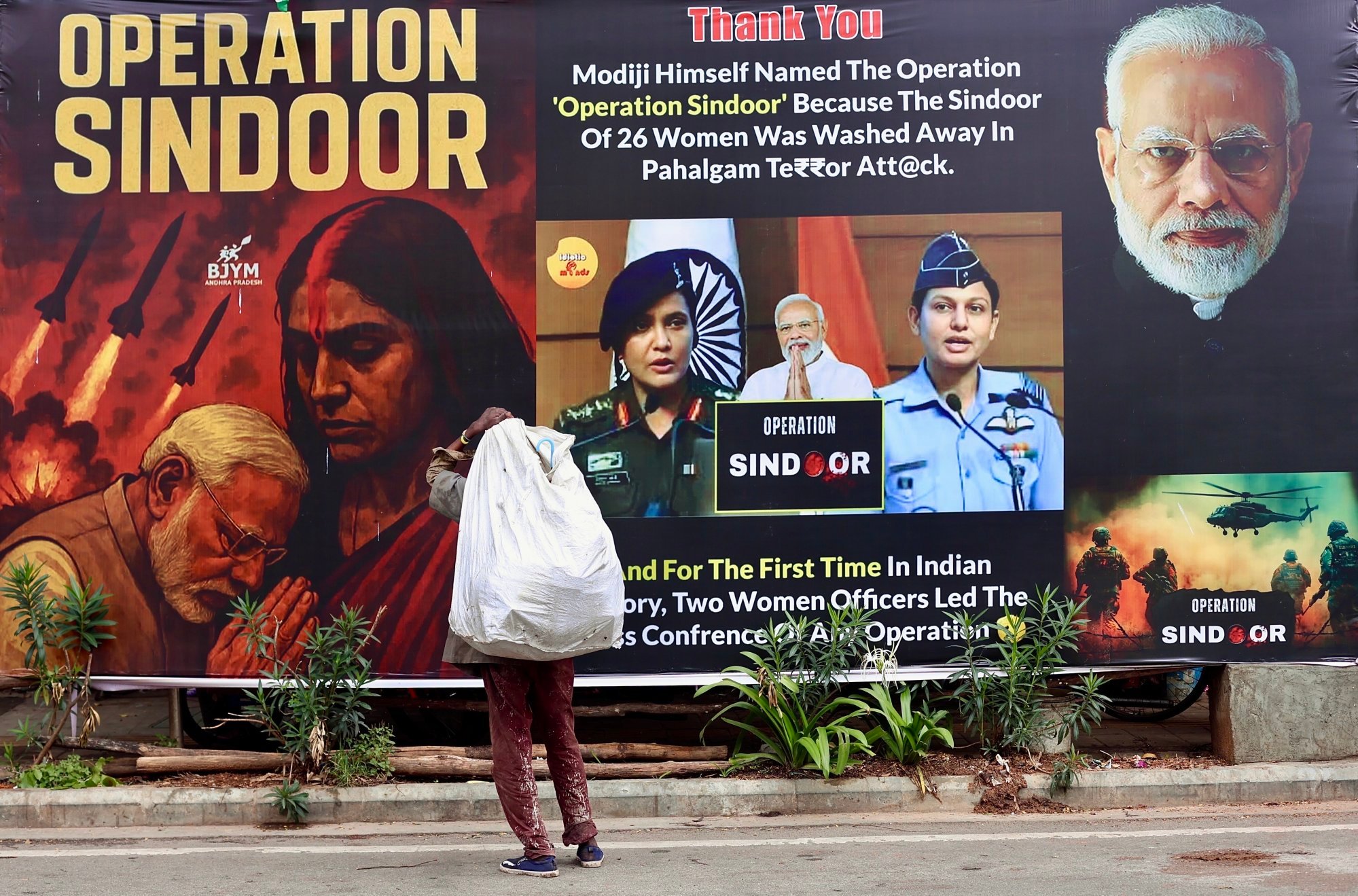
Some critics have spotlighted Modi’s abrupt ceasefire call after just four days of conflict as a sign of weakness. Hindu hardliners had urged the military to push deep into Pakistan-occupied Kashmir, rather than end hostilities with a draw.
“There are people in the BJP who have been disappointed. But they are likely to bottle up their sentiments and stay on because they would not like to join the Congress party,” Deshmukh said, of the main opposition party.
India says the ceasefire followed a call by Pakistan’s director general of military operations after Indian forces inflicted extensive damage on nine Pakistani air bases.
Pakistan says it downed several Indian jets during the clash, while India too has claimed that it shot Pakistani planes. In the fog of war, neither side’s claims have been fully substantiated.
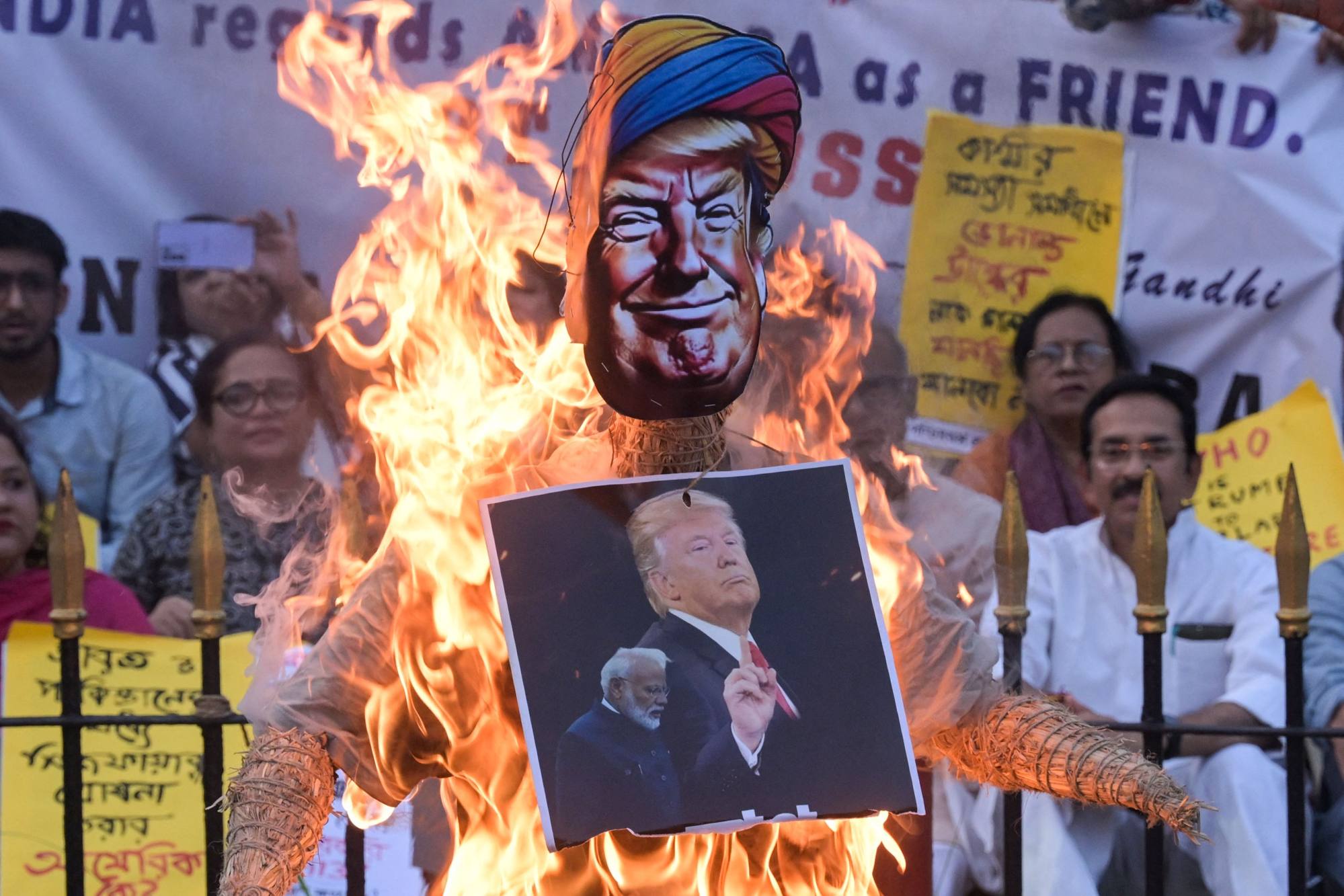
US President Donald Trump has thrown a spanner in the works.
He has repeatedly claimed that he mediated the ceasefire between India and Pakistan, embarrassing New Delhi which has always insisted that any dispute with Pakistan will be sorted bilaterally without involving a third party.
Indian officials have denied Trump’s claim that he single-handedly brokered the ceasefire between India and Pakistan.
Modi “lost face” over the episode, Chandra said.
“He [Modi] has not directly contradicted the statement by Trump. But he has also not answered a basic question raised by ordinary Indians: ‘If India was really as successful as media outlets showed, then why pull out of the conflict?’” he asked.
Political opponents have also been quick to seize on Trump’s comments.
K.C. Venugopal, a member of parliament from Congress, took a veiled dig at Modi saying in a social media post on X: “Time has passed when any nation sitting 3-4 thousand miles away could give orders to Indians.”
Congress’ de facto leader Rahul Gandhi criticised the ceasefire agreement with Pakistan, alleging it was a surrender influenced by Trump.
“Donald Trump picked up his phone and signalled Modi-ji – Narendra, surrender. And PM Modi abided by Trump’s orders,” Gandhi told a gathering in Madhya Pradesh state capital Bhopal on June 3.
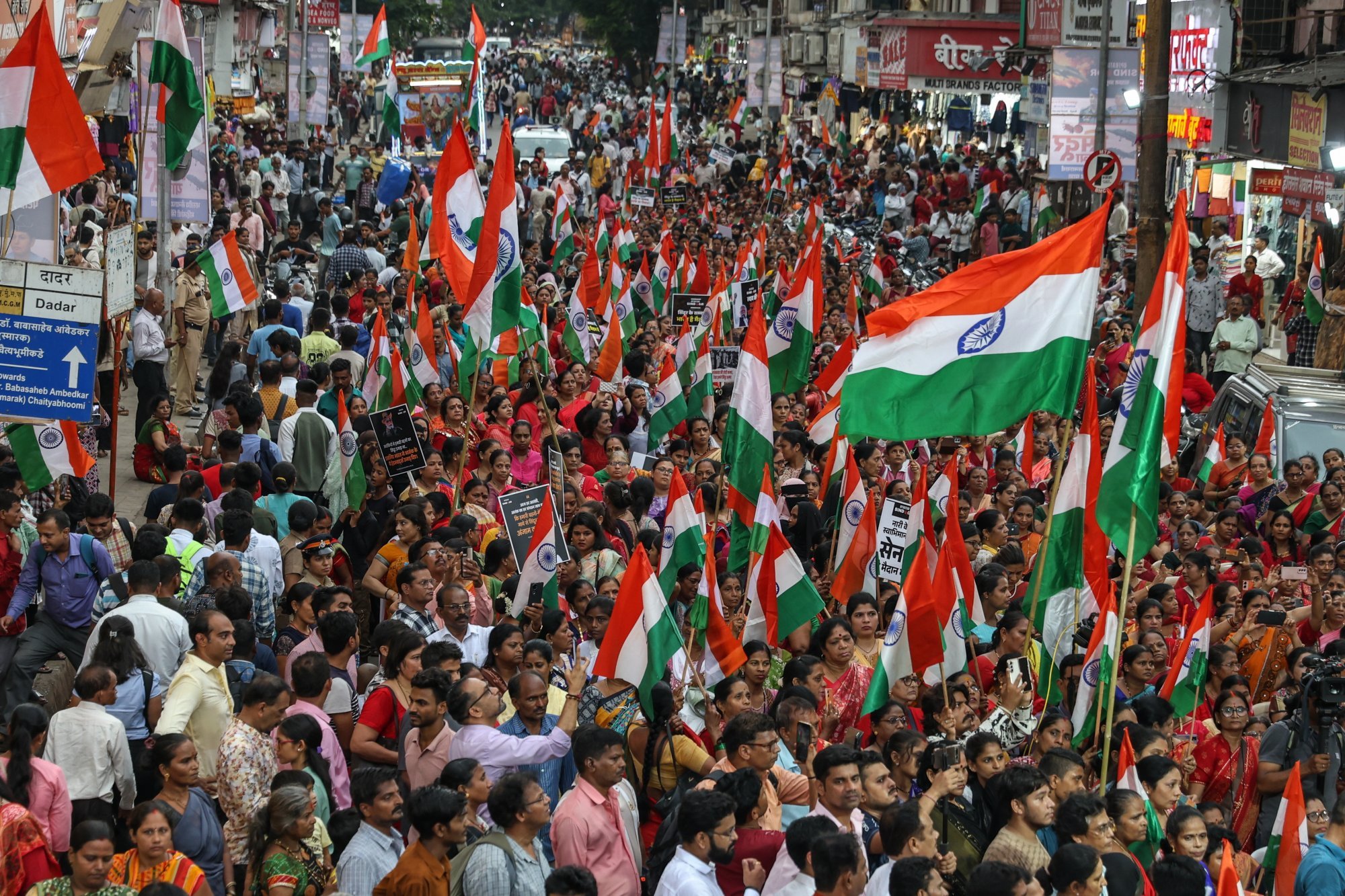
Diplomatic offensive
India’s federal government sent seven multiparty delegations to visit 33 countries over two weeks to present the country’s stance on cross-border terrorism and Operation Sindoor, billed as a show of national unity following the Pahalgam attack.
The effort outflanked domestic opponents and raised “questions whether they are levelling criticism only for the sake of criticism”, said Nilanjan Mukhopadhyay, a political commentator.
Yet Indian observers have also been disappointed with the feedback from their international community, mainly over the lack of unequivocal condemnation of Pakistan.
“I don’t think India was very successful in convincing other parties that there was a direct connection between the Pahalgam terror attack and Pakistan,” Mukhopadhyay added.
Others say the Indian delegations made their mark.
“I think we did make an impact,” said Vivek Mishra, deputy director of the strategic studies programme at the Observer Research Foundation.
“But few countries would give out statements in the middle of a conflict because things are too dense to know what is really happening.”
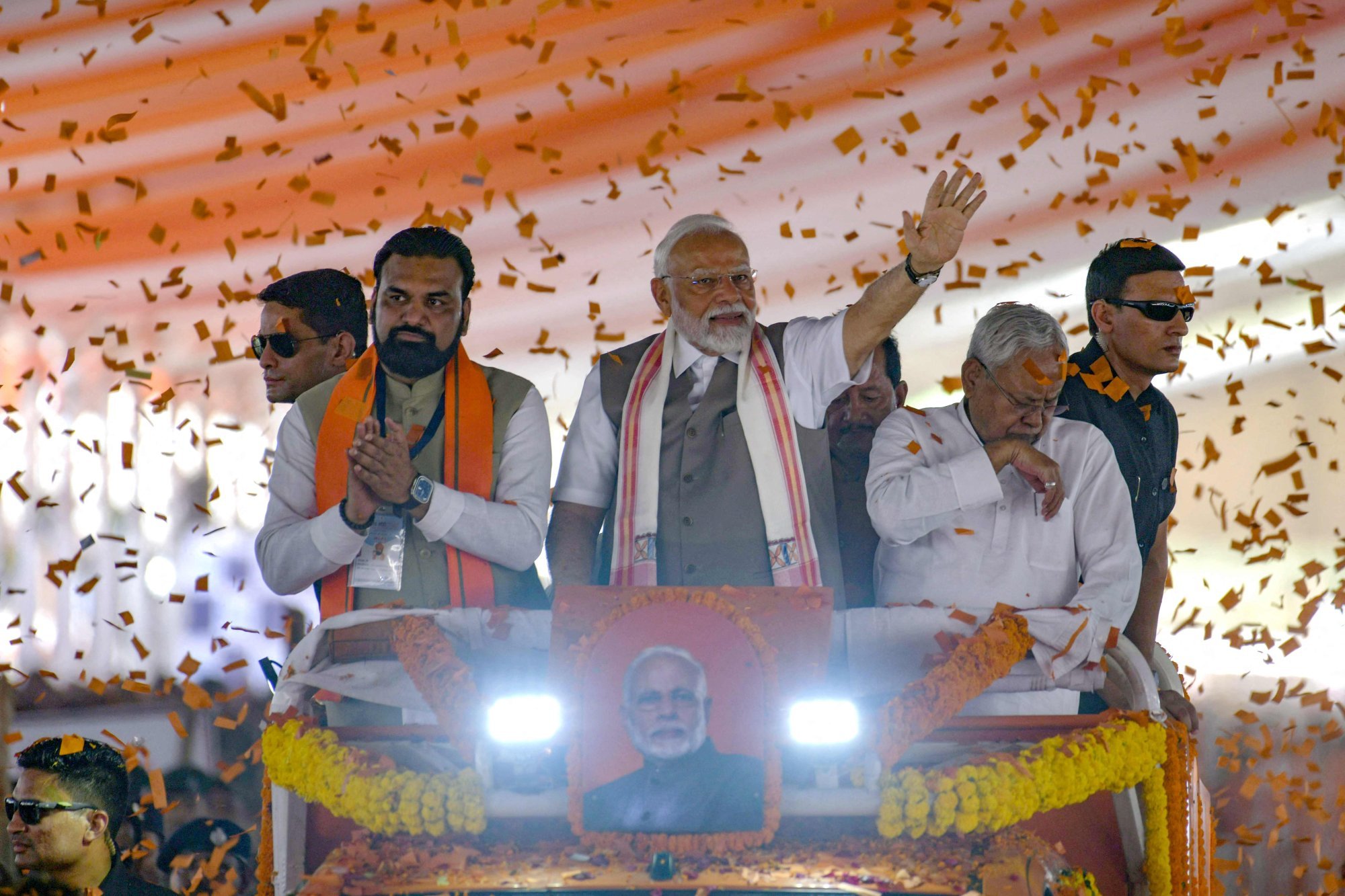
While the ceasefire is holding, both countries have braced themselves for the next flare-up of tensions, aware that they are on dangerous new ground since India conducted raids directly into Pakistan.
And the rhetoric from Delhi remains sharp.
At an election rally in the eastern state of Bihar last month, Modi promised to hunt down terrorists wherever they might be if they dared to attack India again.
“Our Indian army brought to the knees the terrorists who thought they were safe and secure under the shelter of Pakistan’s army,” Modi told a mammoth gathering, lauding the Indian forces.
“During Operation Sindoor, the enemy faced the brunt of India’s military might. They should understand that we had fired just one arrow in India’s quiver. India will neither pause, nor halt its onslaught on terrorism,” he said.
“If terrorists dare to raise their heads again, then India will snatch them out of their hiding holes and crush them.”